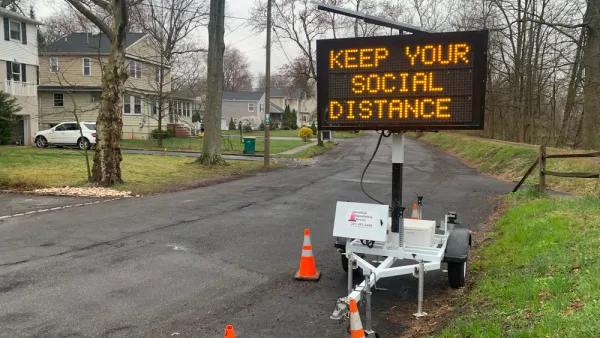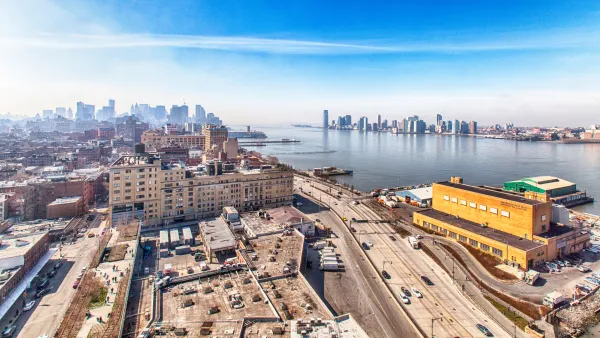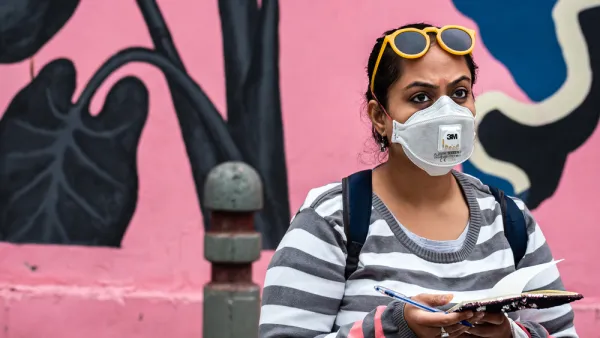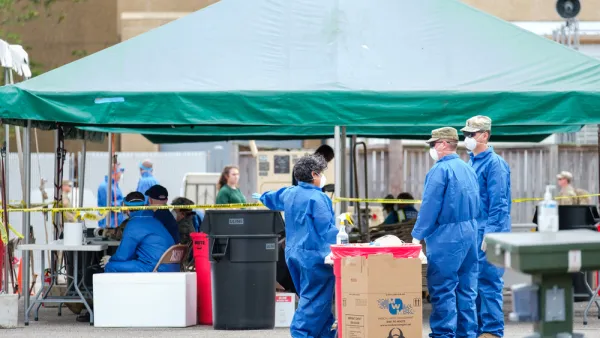Irvin Dawid discovered Planetizen when a classmate in an urban planning lab at San Jose State University shared it with him in 2003. When he left San Jose State that year, he took with him an interest in Planetizen, if not the master's degree in urban & regional planning.
As a long-time environmental activist, he formed the Sustainable Land Use committee for his local Sierra Club chapter and served six years on the Bay Area Air Quality Management District’s Advisory Council from 2002-2008. He maintains his interest in air quality by representing Sierra Club California on the Clean Air Dialogue, a working group of the Calif. Environmental Dialog representing business, regulatory and public health/environmental interests.
Major interests include transportation funding, e.g., gas taxes, vehicle miles traveled (VMT) fees, road tolls and energy subsidies that lead to unlevel playing fields for more sustainable choices.
He hails from Queens (Bayside) and Long Island (Great Neck); received an AAS in Fisheries & Wildlife Technology from SUNY Cobleskill and a B.S. from what is now Excelsior College.
After residing for three years on California’s North Coast, he’s lived on the San Francisco Peninsula since 1983, including 24 years in Palo Alto. Home is now near downtown Burlingame, a short bike-ride to the Caltrain station.
He’s been car-free since driving his 1972 Dodge Tradesman maxi-van, his means to exit Long Island in 1979, to the junkyard in 1988.
Major forms of transportation: A 1991 'citybike' and monthly Caltrain pass, zone 2-2. "It's no LIRR, but it may be the most bike friendly train in America."
Irvin can be reached at [email protected]

Report: Expect to Live with Two More Years of Social Distancing
As a majority of states relax stay-at-home restrictions, a prestigious team of experts from the University of Minnesota, Harvard and Tulane universities warns that the coronavirus will likely last 18 to 24 more months, returning in successive waves.

Urbanism Pays the Price for High COVID Death Toll in New York and New Jersey
Opponents of dense housing and public transit have seized on the disproportionate death toll originating from the epicenter of the nation's coronavirus outbreak. Is it time for the leaders of New York and New Jersey to admit they acted late?

States to Train Public Health Armies to Move Beyond Mitigation to Containment
As some governors open nonessential businesses, subjecting workers and customers to potential viral infection, others move beyond social distancing to the next steps, boxing in the coronavirus with testing, contact tracing, isolation, and quarantine.

States Take Steps to Reopen Regardless of White House Guideline Criteria
Governors of several states announced initial steps to reopen their economies even though their COVID-19 caseloads are not meeting the criteria that they show a decline for two weeks, according to White House reopening guidelines issued April 16.

U.S. Needs to More Than Triple Testing Before States Can Open, Study Says
The United States currently tests about 145,000 people daily. A Harvard study calls for a minimum of 500,000 daily, but that's on the low end if the country wants to prevent shutting down again due to a second wave of the coronavirus.

























